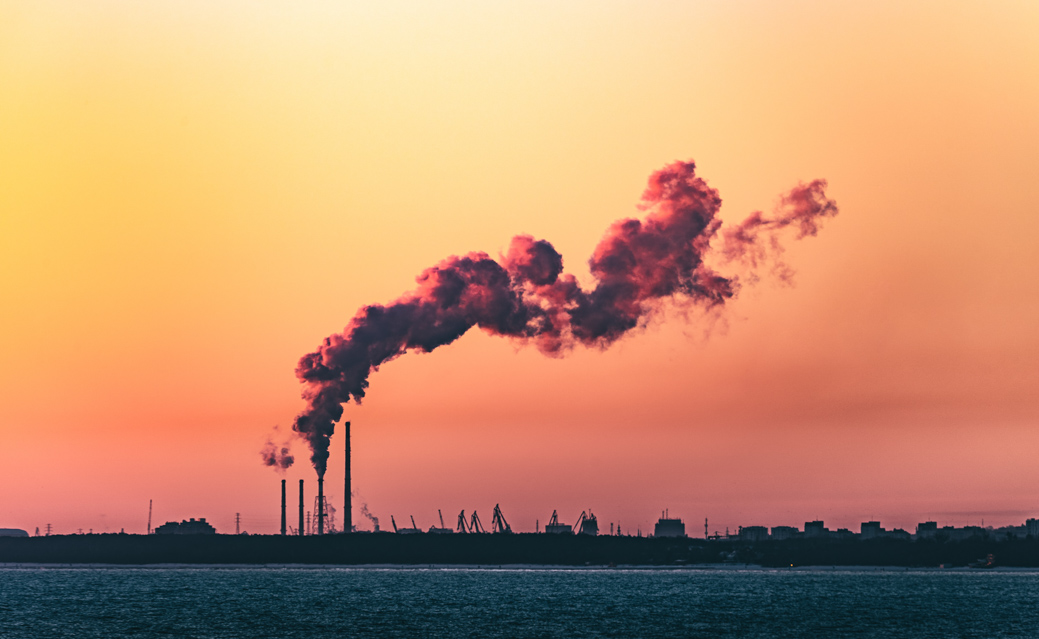Taking action against climate change
We must stand united against climate change.
As the Earth rapidly industrialized over the past three centuries, the pace of climate change with it. Today, we can already feel the effects of climate change through extreme weather, wildfires, rising sea levels, and scorching summers, to say the least. However, global warming will not just stop there.
We need to act immediately to slow global warming such that its detrimental effects may be slowed down, since we have crossed the point where we can prevent it altogether.
In early August, the Intergovernmental Panel on Climate Change (IPCC) of the United Nations published a report after eight years stating that we are in the midst of a worsening environmental crisis and have entered ‘code red’. In a matter of decades, numerous issues may arise, particularly the extreme heat, heavy precipitation, and a higher chance of frequent droughts across the world. Rising sea levels put coastal and low-lying regions at risk of being inundated.
Additionally, the IPCC report identified numerous methods of reducing emissions to slow global warming. These include reducing emissions of methane and black carbon, and energy consumption. Most of the listed methods showed that the actions of individuals alone will not suffice in the race against climate change. However, individual action is still important.
But to truly keep global warming in check, we need to look towards the actions of companies and large corporations, whose exploits occur at a larger scale and thus have a definitive impact on the environment.
The first step would be to convince climate change skeptics that climate change is a pressing matter deserving attention. A united front is vital to the success of tackling global warming. Statistics show that almost 66 per cent of the world believes that climate change is a global emergency. This number must increase. Rather than using the conventional method of pointing out the disastrous consequences of climate change, stating the benefits of facing global warming head on to skeptics may be the more convincing option. Sometimes, hearing a different perspective is all that is needed to convince someone.
It is important to note that many companies’ claims of going green are nothing more than ‘greenwashed’ schemes used to entertain the public. The government needs to play a monitory role in this, holding companies to their word. Most notably, the government needs to implement anti-greenwashing legislation and enforce punishments for infringing such laws. This would prevent companies from dodging environmental responsibilities by playing around with empty words and claims.
Likewise, we must dissuade companies from greenwashing, which does little to nothing in aiding environmental protection. Consumers must learn to identify greenwashing attempts made by companies. With this, consumers can pressure companies into upholding their green policies.
In terms of identification, grand claims that lack concrete supporting evidence and are phrased vaguely are one dead giveaway that a company is greenwashing. For example, companies will celebrate their ‘carbon offset certificates’ without meaningful contributions to actually offset their emissions.
Similarly, companies may bombard their customers with large amounts of irrelevant information to distract them from environmental problems caused by the company’s actions and products. For example, British Petroleum, one of the largest oil companies in the world, coined the term ‘carbon footprint’ and launched the ‘carbon footprint calculator’ to incentivize individuals to monitor their independent actions over the offences big oil commits.
In the case of inaction, climate change would affect Canada just as it would any other country. Should the temperature of the globe increase, as predicted by the IPCC report, heatwaves as severe as this summer’s would occur more frequently, creating numerous opportunities for starting blazing wildfires.
This year, wildfires have taken the spotlight in the province of British Columbia, having already consumed more than 8,580 square kilometers of land in 2021, a number that will only increase with the new wildfire raging near the city of Penticton, and the devasting wildfires in Ontario too. As of the end of August, the wildfires season of 2021 in British Columbia already ranks as the third worst in history. This daunting trend of worsening wildfires carries grim implications for the future.
The time for deliberation is over. Statistical evidence proves that our current attempts to preserve Earth’s environment are not even remotely close to being enough. Rather than making empty promises and grand statements, let us, and the companies contributing to the warming of the earth, take concrete action against climate change to save our precious home.


